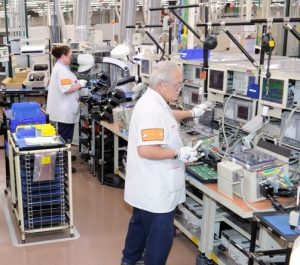The 80-20 Rule
Vocabulary
| notice | founder | time management |
| pea | state (2) | one of the most |
| pod | the rest | carry out |
| seem | conclude | distribution |
| vital | principle | remaining |
| trivial | generate | principal |
| survey | activity | account for |
| claim | effective | vice versa |


Vilfredo Pareto
The 80-20 Rule is one of the most useful concepts in work, business and time management. It is also called the Pareto Principle after its founder, the Italian economist Vilfredo Pareto.
Pareto had actually studied engineering at university, and worked in the railway and iron industries. But he became interested in economics and sociology, especially in his mid-forties.
The Discovery
In 1906 Pareto wrote a paper which claimed that 20% of Italians owned 80% of the land in Italy (he first got this idea by noticing that about 20% of all the pea pods in his garden contained 80% of the total pea seeds).
He then carried out surveys in other countries — and to his surprise, obtained similar distributions.
Pareto concluded that people in society seemed to divide naturally into what he called the “vital few” (the top 20% in terms of money and power), and the “trivial many,” the bottom 80%.
In Business
He later noticed that most economic activities followed this pattern as well.
For example, in a store, 20% of its products generate 80% of all sales, while 80% of the products generate the remaining 20%. Twenty percent of the customers account for 80% of all purchase revenue, while 80% of the customers account for the rest. 20% of the customers complain and give you 80% of your problems and vice versa.
The 80-20 Rule has become an effective tool in running and organizing business and personal life.


Questions
1% The 80/20 Rule is a scientific concept that only applies to physics and chemistry. True or false?
3% Did Vilfredo Pareto study economics at university?
10% Did he seriously study economics and sociology right after he graduated? What did he do in the beginning?
20% What did he observe in his country?
25% Was this unique to Italy?
33.3% Where did he get this idea or concept?
50% The Pareto Principle applies only to economics and sociology. Is this right or wrong?
66.6% I have heard of the 80-20 Rule or Pareto Principle. Yes or no?
75% How would the 80-20 Rule apply to the following? Give examples.
1) vocabulary
2) education
3) people
4) jobs, occupations; employees
5) devices, gadgets, widgets, electronics
6) languages
7) TV channels, websites
8) foods, crops
9) business, companies
90% How could the Pareto Principle be used to improve the efficiency and productivity of your company or organization?
a) products or services
b) clients, prospects, customers, target groups
c) vendors, suppliers
d) employees
e) time, money, investments, resources
99.9% Do you have tasks and activities that fall into the 80-20 Rule? What are they? Knowing this, what should you do?
110% How could it be used to improve people’s lives?
